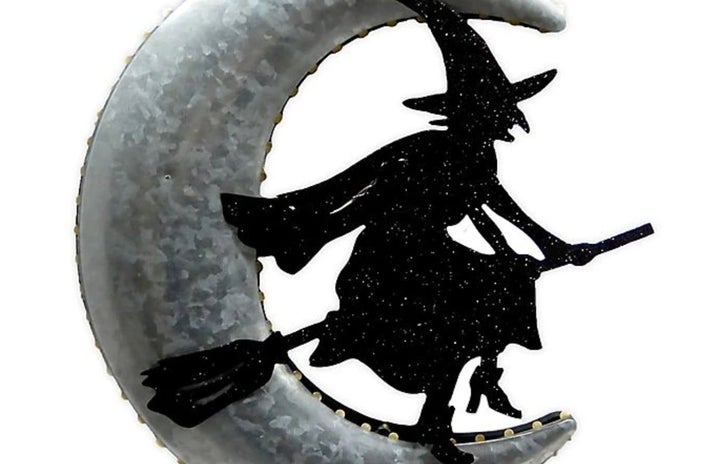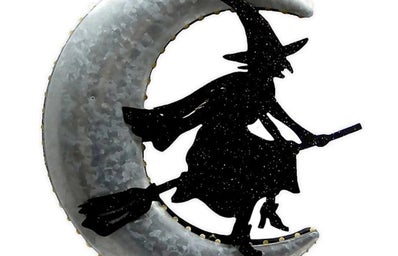It would be an understatement to say that Wicked was an emotional experience. I remember seeing the Broadway version when it came to Denver in 2012. At nine years old, it was the best night of my life. I sang “Defying Gravity” for way too many auditions, dressed up as Elphaba for Halloween (“Oh are you the Wicked Witch?” “Excuse me, her name is ELPHABA.”), performed “Popular” for my third-grade talent show, and ultimately made loving Wicked my entire personality for five years (up until liking musicals became uncool). My mom told me eventually Wicked would become a movie, and more importantly, I’d be able to watch it whenever I wanted. I never thought “one day” would get here; to be honest, I even forgot about Wicked for a while. I stopped listening to the soundtrack, and I let go of my dream role of Elphaba. When I found out about the movie, I felt apathetic. I was excited to see it, but I had forgotten its magic and the beauty of the production. However, when I saw Glinda’s pink bubble float down from the sky into Munchkinland on the large silver screen, I regressed to 9-year-old me, and I welled up with tears. With such a deep history with the story and production, I had high hopes for the movie adaptation. Needless to say, it did not disappoint.
For those who haven’t been obsessed with Wicked for years, it serves as the prequel to The Wizard of Oz. It focuses on the story of the Wicked Witch of the West, long before Dorothy arrives in Oz, and further explores her side of the story leading up to The Wizard of Oz. At its core, Wicked is a love story between Glinda and Elphaba, taking the audience through the development of their friendship. Elphaba is ostracized from birth due to her green skin and she embarks on a journey of self-acceptance where, at the end of the first act, she fully steps into her power in “Defying Gravity”. Its themes explore how to own our differences and have empathy for others. Over 20 years after the original Broadway premiere, we need Wicked now more than ever.
Jon M. Chu, the director of Wicked, stated: “I felt very compelled at the moment that they offered this moment to me because I needed to find the urgent reason for this movie to be made. I couldn’t just go make Wicked, it was ‘why now?’ And the words of Stephen Schwartz and Wendy Holtzman were so prophetic. They wrote this in 2002, right after 9/11, and sort of the world in transition about to go into war. And we’re being tested again in our world right now where the storyteller has been revealed and they don’t know all, and it’s up to whatever this generation chooses to be to see what the story we make for ourselves is. And this absolutely tackles that in the most grand, cinematic scape that you can, with the intimacy of this relationship. And so, that for me was the urgency of making this movie.”
Wicked was everything that a movie-musical adaptation should be. The majority of singing was done live, with Ariana Grande and Cynthia Erivo singing all of their songs live. The choreography evoked a loyal Broadway style and allowed the actors to embody their characters and further immerse the audience in the world of Oz. The set was enormous and all-encompassing, for both the audience and the actors. The entire production team worked closely with one another and each element supported the overall vision, not to mention the impeccable cast.
I have absolutely zero qualms with the casting. Every character was a perfect choice, and I can’t imagine it any other way. I’ll have to write another article to do a full deep dive on casting (possibly soon to come), but generally speaking, every leading and supporting actor in the movie is a serious triple threat, and Chu masterfully highlighted each of their strengths and gave them the space to make the characters their own.
I specifically want to highlight the casting of Ariana Grande as Glinda. Like many other die-hard Wicked fans, I was apprehensive when I found out Grande got the role — as Grande herself anticipated. Even though she started her career on Broadway, she’s been doing pop music for most of it thereafter, and I feared her popstar persona would overpower the true nature of Glinda.
“I have never wanted something as badly as I did this,” Grande said. “I worked every day with [my vocal coaches] to transform my voice. My singing voice, everything about me I had to kind of deconstruct to prove to them that I could handle taking on this other person. I kind of had to completely erase pop star Ari.”
Her work paid off, and then some. She sounded light and operatic, and it seemed effortless. She completely transformed into Glinda from her voice to her mannerisms, and I can’t imagine anyone else in that role. She incorporated beautiful homages to Kristin Chenoweth’s original portrayal of Glinda, singing in the same operatic style and adopting Chenoweth’s comedic timing, but her take was far from impersonation. Grande brought new life to Glinda while upholding the character fans love. She owned it, and now Glinda will forever belong to her.
Though I hate to admit this, I was unfamiliar with Cynthia Erivo before Wicked. Erivo gained recognition in the musical theatre for starring in the revival of The Color Purple on Broadway from 2015 to 2017. However, Erivo never imagined being cast as Elphaba, and she didn’t believe it was possible until it happened. In an interview with New York Times reporter, Kyle Buchanon, Erivo said, “Historically, Black women have never really been seen for the role. If they have, they haven’t gotten the role, and if they do, they usually are the alternate or first cover. There’s only one woman I know on record that has done it on the West End. So I just didn’t think they were looking for me.”
Needless to say, Erivo was exactly what the filmmakers were looking for. Her voice is otherworldly and she brought depth and nuance to her portrayal of Elphaba. After being cast, Erivo wanted to ensure that her blackness wouldn’t disappear behind Elphaba’s greenness. “I didn’t want to remove myself from Elphaba,” she said. “I wanted to connect the two.” In the movie, Elphaba has gorgeous micro-braids and long nails, important elements of her own black identity that Erivo brought to the role. Elphaba’s character is an allegory for marginalized individuals, and considering the emphasis on her green skin, she reflects a central theme of racism. Erivo, as a black, queer woman —who has plenty of her own experiences of being ostracized and othered — brought a new and essential layer to Elphaba. Through Erivo’s portrayal, the necessity of Wicked in the current world we live in is stark.
When we were brought to Shiz University, I wondered where filming was based, especially after seeing the stunning building used as a backdrop for the first act. The warm, Mediterranean color palette combined with the winding spiral staircases and weathered copper roofs gave a stunning setting to be introduced to our adult protagonists. After Googling to see if they found some gorgeous old castle in Spain as set dressing, I fell down a rabbit hole of footage of the sets for the movie being built. All of the sets were practical and functional, with the train to the Emerald City actually moving on the tracks and the fountain in the city center spouting real water. The use of real practical set design allows you to sink into the story, as rooms and courtyards felt full and the cast was able to play with the space they were afforded. The same applies to the costumes. The designs were appropriate to the characters and the settings, but they had a very specific flair brought by Chu’s team that differentiated it from the original Broadway and West End productions. The costumes utilized texture and layering in a way to allow for special distinctions, such as the ability to give the Shiz student ensemble uniforms while also including depth in group songs. As well, it immediately bifurcates our world from theirs, adding a sense of whimsy that I guarantee that a well-respected university would not possess in our world.
The choice to allocate the original 2 hours and 45 minutes of the original stage production just for the first act of the show originally set off some of my internal spidey senses, wondering how it would all play out, but I have nothing to say other than it was a phenomenal choice. This way, we could linger in conversations we didn’t get the chance to indulge in when watching the original stage production. We got more motivation, humor, and character choice that was added by the writers and production team for the film that you just aren’t allotted in the Broadway production. As well as letting us enjoy the new writing, we got to sit and stare at the stunning sets and costumes. I spent half of the movie with a slack jaw entranced by the train to the Emerald City, the curves and colors of Shiz University, all of the beautiful 9 million tulips planted specially for Munchkinland, or the Shiz University library, leading to a feeling of total immersion in the setting.
Though I feel that the choice to split the movie into two was genius and essential, I can empathize with viewers who don’t have a pre-existing connection to Wicked and their potential unwillingness to subject themselves to not only one movie musical, but two. But, quite frankly, movie musicals aren’t everyone’s cup of tea, and no matter how hard a director tries, they can’t change that unfortunate fact. Wicked first premiered on Broadway in 2003 and is the fourth longest running show in Broadway history. It has a rich history with a huge fanbase of musical lovers, including myself and practically every production member, actor, and designer involved in the movie adaptation. Jon M. Chu knew from the get-go that the movie adaptation required two films: “It was sort of very clear when we got in there because the versions that were in one movie, we had to strip out all of these songs and then change the story and it suddenly wasn’t Wicked anymore,” he said.
In order to do justice to the story, the music adaptation had to be significantly longer than the original musical. Wicked is magic. Oz is mystical and dreamlike, Glinda appears in a large pink bubble, and Elphaba flies. On the stage, so much of this magic is implied and imagined, but you can’t get away with that on the big screen. To accomplish the world-building essential for a show like Wicked, more time and space had to be taken, and I am so grateful Chu gave it the time and space it needed and deserved.
Chu has a close relationship with the Wizard of Oz. His family immigrated to the US from China and the imagery of the yellow brick road, leading to the wizard where you needed to prove yourself worthy, symbolized dreaming and making it in America for him.
“I also saw [Wicked] before it was ever on Broadway, and it was a revelation”, said Chu. “It was the most cinematic story I’d seen on stage before. And I remember thinking, well, someday some director is going to do this really well.”
Luckily for Chu — along with the rest of us — he became the director, and he did very well. Though I was incredibly excited to see the movie, I was also terrified. I was scared that a movie adaptation of the musical I knew and loved so deeply would disappoint me. Yet, the opposite happened. After seeing Wicked, my love of the original musical renewed and I felt reborn. I’ve already seen the movie twice, I plan to see it a third time, and I am beyond excited to see the second movie. I have been listening to the movie soundtrack non-stop and returned to my musical theatre roots — though, I would like to sincerely apologize to all of my friends who now must deal with the aftermath as I attempt Glinda’s operatic solos multiple times a day.



